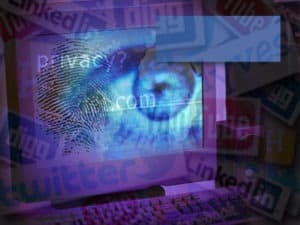
by Ross Sivertsen | Jan 12, 2015 | Blog, Information Security

If you don’t think net neutrality and internet sovereignty are related, you better think again.
The republicans in congress are fiercely fighting the request by the Obama administration to classify broadband internet providers as a utility making them, and the Internet, subject to much stricter regulation.
At the heart of the net neutrality debate is ostensibly whether or not internet should be considered like a utility and therefore subjected to utility provider regulation similar to electric or telephone service.
Meanwhile in China, Internet Czar Lu Wei and President Xi Jinping are arguing the states right to manage and govern the the information running across it’s sovereign territory. The Internet, Wei argues, is part of the national infrastructure like roads and power and it is the states responsibility to insure infrastructure stability.
Both prescribe controlling information flow across the internet, albeit each country takes a slightly different approach. While China is more overt in controlling information; by classifying and categorizing information protocols, the proponents against net neutrality arrive at very much the same place.
The tragedy of the Charles Hebdo shootings simply underscore the stakes involved in the freedom of information debate.
We are quickly facing a world where the information we’ve taken for granted may not be as easily accessible.
http://lrs.ms/ChinaInternet20151
http://lrs.ms/ChinaInternet2015
http://lrs.ms/NetNeutrality2015
http://lrs.ms/NetNeutralityDefined

by Ross Sivertsen | Jan 9, 2015 | Blog, Information Security

From the Snowden leaks last year, to all of the ‘cyber breaches’ and loss of personal information from large retailers in the last couple of years; we as a global village are finding out that keeping things to yourself is not as easy as it once was.
All of the social media platforms compound the difficulty of keeping our private information private, and we all struggle with the increasing importance to do so.
In a world where EVERYTHING is ‘out there forever’ as soon as it’s set in to the wild, and where almost everything is subject to discovery in our increasing litigious society; I see an increase in the number of secure messaging apps aiming to help keep conversations private; for example;
Sicher, Silent Circle, CyberDust, Signal, et al. all use end to end encryption and data destruction to provide a means for groups of people to communicate with each other securely and privately.
Even WhatsApp, the popular text messaging replacement application is starting to use end to end encryption.
But I’ve noticed another trend unique to these secure applications; while they have provided a means of ‘hiding from prying eyes’ they have fostered a new sort of social media platform.
For example one of my favorite new apps is CyberDust (available on iOS, Android, and Windows Phone). CyberDust not only provides secure person to person messaging because everything runs over an encrypted channel, and the messages self destruct after a short period of time AND are NEVER stored on their servers or any endpoint; CyberDust also provides a sort of ‘Twitter-Like’ platform where a person can ‘Blast’ a message to a group of subscribed followers.
I’ve been using CyberDust to sort of ‘Pre-Publish’ posts, as a platform that allows me to get something ‘out-there’ quickly without a lot of editing, and in somewhat longer format than the Twitter limit of 140 characters.
I find this feature incredibly useful, because I can send raw unedited posts to my followers without worrying too much about the editorial content, grammar, and so forth; and since I save my posts to Evernote, I can come back at a more convenient time, clean them up and post them on LinkedIn or my blog (blog.ross-sivertsen.com).
But I’ve noticed as I’ve used CyberDust, something more disturbing occurring; many of the people I follow, some of them professionals, are posting pictures and comments I believe they would think twice about posting if the platform they were using was as open as Facebook, or Twitter.
Let me say before I continue, that I’m neither Polly Anna nor prudish about this subject, and I am in NO WAY making a judgment about anyone I follow; I publish a number of posts that are all raw, unedited, and sometimes incendiary.
What I am saying is; even with a platform that leaves no physical nor virtual evidence of pictures, posts or comments; when we intentionally broadcast a message to a group of people, do we not leave with our audience, followers and listeners a residual impression of who we are; whether or not evidence exists?
This subject goes beyond privacy issues and quickly is an issue of reputation management. The fact of the matter is regardless of whether or not the platform is secure and encrypted, I am sending a post out to the public, i.e. more than one person to whom I have no personal relationship other than they follow me, rather than one or two people with whom I have a relationship and where the conventional social contract of confidentiality is the norm.
I believe in the right to personal expression and exercise said personal expression frequently, I am also acutely aware of the consequences of my actions, and of the things I publish or portray.
My point is that this message becomes a cautionary tale to everyone (most of all myself) that we leave a lasting impression of who we are and what were about with the people around us; even if the evidence self destructs after 30 seconds.
“Three people can keep a secret, if two of them are dead.” – Benjamin Franklin
by Ross Sivertsen | Jan 1, 2015 | Blog, Business
Haiku Deck (and Nancy Duarte’s Book – Resonate) has changed the way I present content in and speaking; I hope to see them at SXSW 2014 – Unlocking Inspiration for Visual Storytelling – http://ow.ly/odxEG


